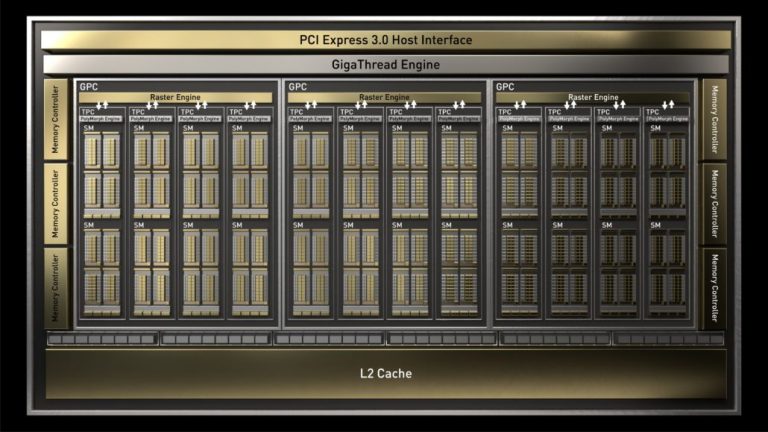
NVIDIA introduced their Turing GPU architecture last year, taking a complete departure from traditional GPU designs and creating a hybrid architecture that would include a range of new technologies to power the next-generation immersive gaming experiences.
While initially announced with Quadro lineup under the new Quadro RTX brand, we all knew that the Turing architecture was coming to the GeForce lineup. It arrived in the GeForce lineup a few months later under the new GeForce RTX branding. NVIDIA’s first big naming departure since two decades of GeForce GTX.
Related NVIDIA GeForce GTX 1660 Reportedly Features Turing GPU With 1408 CUDA Cores, 6 GB VRAM, $220 US Price

The GeForce RTX 20 series was the enablement of real-time raytracing which is the holy grail of graphics and something NVIDIA spent 10 years to perfect. In addition to raytracing, NVIDIA also aims to place bets on AI which will play a key role in powering features such as DLSS or Deep Learning Super Sampling, a unique way of offering the same quality as the more taxing MSAA AA techniques at twice the performance.
NVIDIA has announced for cards under the GeForce RTX 20 series family, the flagship GeForce RTX 2080 Ti, the Enthusiast GeForce RTX 2080, the high-performance GeForce RTX 2070 and the main-stream GeForce RTX 2060. Now, NVIDIA is looking to offer Turing under more reasonable prices but also going back to the good-old GeForce GTX branding and for good reasons. While GeForce RTX and GeForce GTX will exist alongside each other in this generation, the GeForce GTX lineup as the name suggests would be aiming for raw performance over the graphics intensive RTX features which only the RTX card support.
Last month, I tested the GeForce GTX 1660 Ti, the first of the GeForce 16 series and Turing GTX lineup. The card hit an MSRP of $279 US which essentially meant that it replaced the GTX 1060 6 GB models. Today, I will be taking a look at the GeForce GTX 1660. The latest NVIDIA entrant with Turing GPU at a reference MSRP of $219 US which just about matches the GeForce GTX 1060 3 GB price point from two years ago and promises to deliver better performance at 1080p resolution at higher power efficiency than before.
When it comes to pricing, the GeForce RTX 20 series are some of the most costly cards NVIDIA has offered to consumers. The GeForce GTX 1660 Ti and GeForce GTX 1660, on the other hand, try to keep budget and more mainstream audiences in mind by offering a price closer to the GeForce GTX 1060 which became a popular gaming card on Steam due to its $249 price point. Following is the current per segment price structure of the entire NVIDIA Turing lineup compared to its predecessors.
Related EXCLUSIVE: Gaming Laptop MSRPs Are About To Get More Affordable With AMD Ryzen and NVIDIA’s Turing GPUs
NVIDIA GeForce GPU Segment/Tier Prices
For this review, I will be taking a look at two custom models from MSI, the GeForce GTX 1660 Gaming X and the GeForce GTX 1660 Ventus XS. Both cards are based on a complete custom design and feature high-end cooling system to keep the GPU running cool. In terms of the price model, the GeForce GTX 1660 Gaming X has a price of $249 US ($30 over reference) while the Ventus XS OC matches the $219 US price point.

With just a few bucks of asking price over the reference models, the custom variants offer a range of features such as triple fan coolers, bulky heatsinks, and custom PCBs allowing for better heat dissipation, higher air flow and more overclocking performance and clock stability at their respective boost clocks which will be higher compared to the reference variants. The main barrier with overclocking on Turing GPUs is by far the power limit and those that offer the highest power limits out of the box are generally the ones with the best overclocking potential and performance output.
In case you want to read our full NVIDIA Turing GPU architecture and RTX/DLSS features deep dive, head over to this link.


